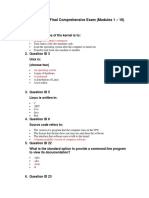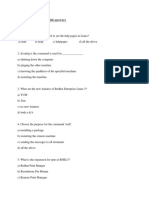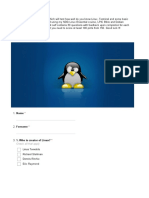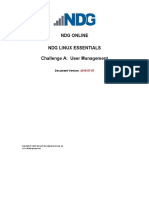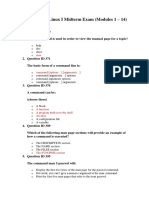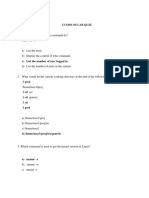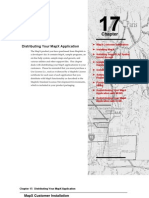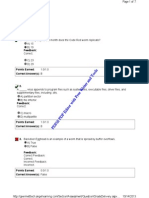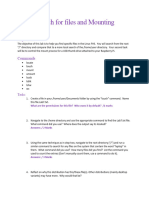0% found this document useful (0 votes)
3K views18 pagesLinux Essentials Chapter 7 Exam Answer
The document contains questions and answers about Linux commands for compressing, archiving, searching, and manipulating files. Compression removes redundant data to reduce a file's size. The tar command is used to archive multiple files into a single file, and options like -c create an archive, -x extracts files, and -f specifies the archive file. The grep command searches for text patterns in files, while less and more allow scrolling through file contents. Pipes send output from one command into another to filter or manipulate the data.
Uploaded by
rrenattavsCopyright
© © All Rights Reserved
We take content rights seriously. If you suspect this is your content, claim it here.
Available Formats
Download as DOCX, PDF, TXT or read online on Scribd
0% found this document useful (0 votes)
3K views18 pagesLinux Essentials Chapter 7 Exam Answer
The document contains questions and answers about Linux commands for compressing, archiving, searching, and manipulating files. Compression removes redundant data to reduce a file's size. The tar command is used to archive multiple files into a single file, and options like -c create an archive, -x extracts files, and -f specifies the archive file. The grep command searches for text patterns in files, while less and more allow scrolling through file contents. Pipes send output from one command into another to filter or manipulate the data.
Uploaded by
rrenattavsCopyright
© © All Rights Reserved
We take content rights seriously. If you suspect this is your content, claim it here.
Available Formats
Download as DOCX, PDF, TXT or read online on Scribd
/ 18

